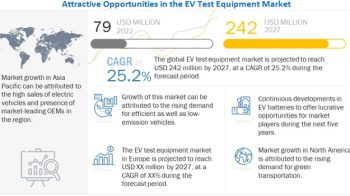
Carbon Footprint Management Market Opportunities and Challenges
The global carbon footprint management market presents both opportunities and challenges for companies. The increasing demand for carbon footprint management solutions is driven by the need to reduce emissions and comply with carbon emission regulations. Government initiatives worldwide are also contributing to the growth of the market. However, companies in this market face challenges such as the need to track, monitor, and reduce emissions effectively, as well as keep up with continuous policy changes related to climate change. Overall, the market is competitive, with key players focusing on product portfolios, technological innovations, and market presence to gain market share. The industry concentration is observed through the market shares of the top players in the carbon footprint management market.
The Carbon Footprint Management Market size was valued at $11.3 billion in 2023, and is projected to reach $30.8 billion by 2028, registering a CAGR of 22.2% from 2023 to 2028.
Download PDF Brochure: https://www.marketsandmarkets.com/pdfdownloadNew.asp?id=136375712
Some of the top companies in the Carbon Footprint Management Market include:
- ENVIROLYTSchneider Electric (France)
- SAP (Germany)
- IBM (US)
- Salesforce (US)
- ENGIE (France)
The Carbon Footprint Management Market is facing both opportunities and challenges in the current landscape. With a growing awareness and emphasis on sustainability, businesses are increasingly looking to reduce their carbon footprint. This has created a demand for carbon footprint management solutions and services. One of the major opportunities in the market is the potential for organizations to improve their environmental performance and reputation by effectively managing and reducing their carbon footprint. This can lead to cost savings, regulatory compliance, and enhanced brand image. However, there are also challenges that the Carbon Footprint Management Market faces. Implementation of carbon footprint management strategies can be complex and resource-intensive for some organizations. Additionally, the lack of standardized measurement methodologies and reporting frameworks can create difficulties in accurately assessing and comparing carbon footprints across different industries and regions. Overall, the Carbon Footprint Management Market presents a mix of opportunities and challenges for businesses looking to address their environmental impact.
These companies have a significant market presence and competitive advantage in the carbon footprint management market due to their product portfolios, technological innovations, and industry expertise. They are actively involved in providing solutions for tracking, monitoring, and reducing emissions, in line with government initiatives and increasing demand for carbon footprint management software across various industries.
Some of the potential clients of the Carbon Footprint Management Market could include industries such as manufacturing, transportation, energy, agriculture, and construction. These industries are likely to be disrupted by increasing government regulations and initiatives aimed at reducing emissions and achieving carbon neutrality. For example, stricter emission standards for vehicles could drive the adoption of carbon footprint management solutions in the transportation sector. Similarly, regulations on carbon emissions in the energy sector could lead to increased demand for carbon footprint management software among energy companies. Overall, these disruptions are likely to increase the demand for carbon footprint management solutions across various industries.
Request Sample Pages of the Report: https://www.marketsandmarkets.com/requestsampleNew.asp?id=136375712
North America is expected to dominate the carbon footprint management market
North America held a dominant position in the carbon footprint management market industry in 2022, and is expected to continue to do so throughout the forecast period as a result of the region’s proactive efforts to reduce the effects of climate change. In line with this, the region has set strong NDC targets and enacted binding ESG disclosure regulations. Carbon footprint management solutions are expected to see considerable growth over the next few years.


